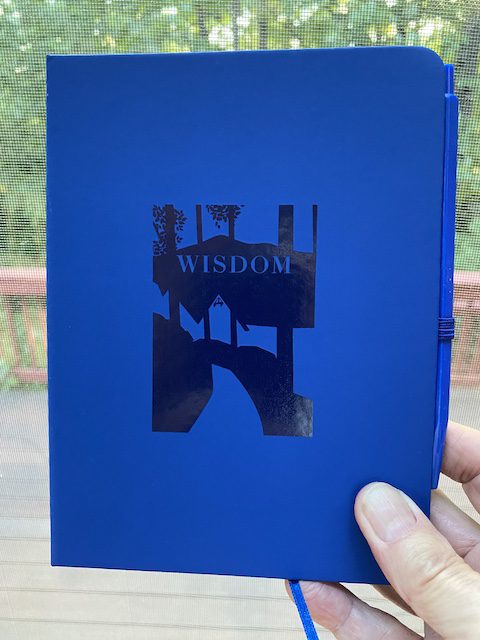“You can buy the property or not, your choice,” my daughter Jessica said to Abigail, her 7-year-old daughter. We three were playing the kids’ version of Monopoly. Abigail, who always went first—youngest to oldest—had landed on the Ice Cream Shop.
Abigail counted her money. “Um, I think I’ll pass this time.” Her conservative strategy matched my own in real life. But this was a game, and Jessica had clued me in to the fact that Abigail needed to learn how to play to win against people also playing to win—and learn how to lose gracefully.
In the past, I’ve almost always lost Monopoly Discover to Abigail due to my “safe” choices and the roll of the dice. But this time, I bought any available property I landed on, even if I was almost down to my last dollar.
And I won, big time, bankrupting both my daughter and granddaughter. Abigail gave me an unhappy look, curled up, and buried her face in her mother’s lap. I knew my choice—to play for the win—had caused her sadness. But wasn’t she also making a choice?
God’s choice
Sometimes it’s hard to understand God’s choices. Take the story of Esau and Jacob, as told by Paul in his letter to the Romans, chapter 9.
And not only this, but there was Rebekah also, when she had conceived twins by one man, our father Isaac; for though the twins were not yet born and had not done anything good or bad, so that God’s purpose according to His choice would stand, not because of works but because of Him who calls, Romans 9:10-11 NASB 1995
Was God unjust in choosing Jacob and not Esau to receive His covenant promises before the twin boys were even born? Paul goes on to remind us that God shows mercy and compassion on whomever He so chooses. The right to decide who receives benefits from God is a choice left to exactly one being: God. He is under no obligation, whatsoever, to rely on other criteria or some “higher” standard to make such a choice.
And now, to our choice: to embrace the mystery of faith or not.
Our choice
“Faith is a choice like any other,” Mary Karr wrote in Lit, a memoir about alcoholism and redemption. More than anything, Lit is about making choices, in Karr’s case, to drink or not, to believe or not, the latter a choice people make every day.
As David Foster Wallace said in his 2005 Kenyon Commencement Address: “There is no such thing as not worshipping. Everyone worships. The only choice we get is what to worship.” As I wrote in this post, Wallace recommended a Deity or an inviolable code of ethics because “pretty much anything else you worship will eat you alive.”
The choice is even more clear in Rabbi Moshe Averick’s book, Nonsense of a High Order: The Confused World of Modern Atheism?. From the introduction: “This book is about the crucial decision human beings face regarding the existence of God. It is without a doubt the single most important decision we ever make. The entire meaning, purpose, and direction of our own lives, the way we relate to our families and loved ones, and the entirety of humanity, hangs on this decision.” The choice: atheism or belief.
A winning choice
Abigail and her mom played Monopoly Discover many times during their visit last week, and I joined them a few times. Abigail often made the conservative choice and sometimes lost the game, this time to her mother out of kindness.
“Don’t worry about being ‘mean’ to me,” Jessica said, “play your best, play to win, just like you do in tennis.” Though she just turned seven, Abigail has been playing tennis for two years and now competes in tournaments.
I reached my hand out to Abigail. “What do you do when you win or lose a tennis match?” She sat up straight, shook my hand, and said, “Good game.” We all smiled.

The day before they left, a box arrived, the “Wisdom” journals I’d order to thank the people who’d helped me get my book published and to sell to those who might like one to go along with my book Wisdom Builds Her House. After discussing what the word ‘wisdom’ meant, I asked Abigail if she would like a journal, to write down her thoughts. She nodded, pulled out the pen, and wrote this:
“Winning is good, but being kind is better.”
And both are a choice.
P.S. Abigail and I played one more game of Monopoly Discover before she and my daughter left on Friday morning. We both adopted an aggressive, play-to-win strategy, and the game ended in a draw. Good game.
Linkup with Five Minute Friday: https://fiveminutefriday.com/2024/06/20/fmf-writing-prompt-link-up-choice/



There is so much sustenance in your post, Carol. Thank you. Thanks also for introducing me to the words of Mary Karr, David Foster Wallace and Rabbi Moshe Averick.
I’m delighted that you found inspiration in my post, as I do in yours.
Oh my Carole, Abagail sounds like such a sweetie. This made me smile. And I’m going to give your book a look too.
Visiting today from FMF#2
Thank you for your comment and for checking out my book. I enjoyed your post and subscribed to your site.
I’m back. I read your book description on Amazon. It is now in my book wish list!
I wrote Wisdom Builds Her House to understand the journey, and published the book to encourage others, like you, new friend.